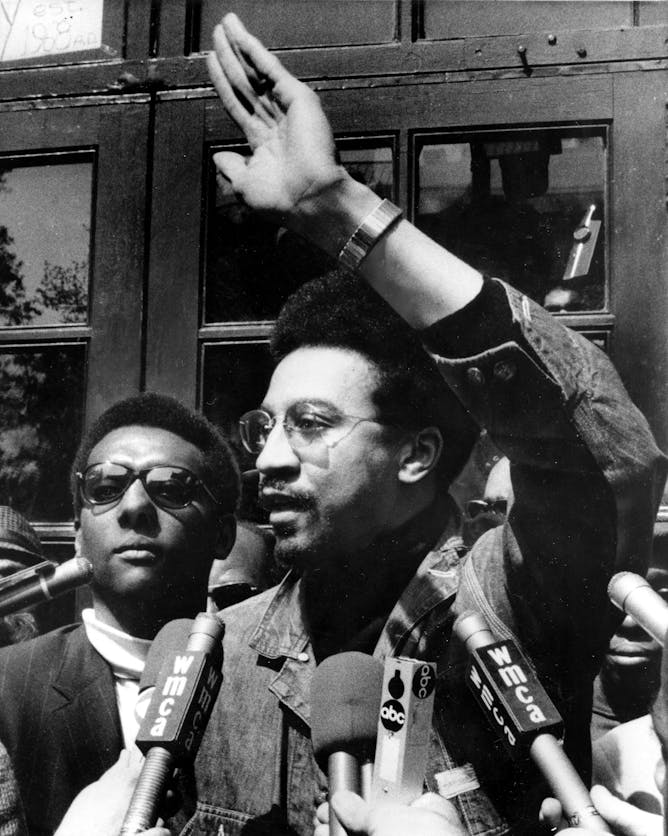
Black power militant H. Rap Brown and Stokely Carmichael (right) appeared at a sit-in protest at Columbia University in New York City on April 26, 1968.
AP
Stefan M. Bradley, Loyola Marymount University
The 1968 protests at Columbia University led the institution to abandon a gym project that residents considered racist and cut off its defense work – and generated worldwide attention in the process.
|
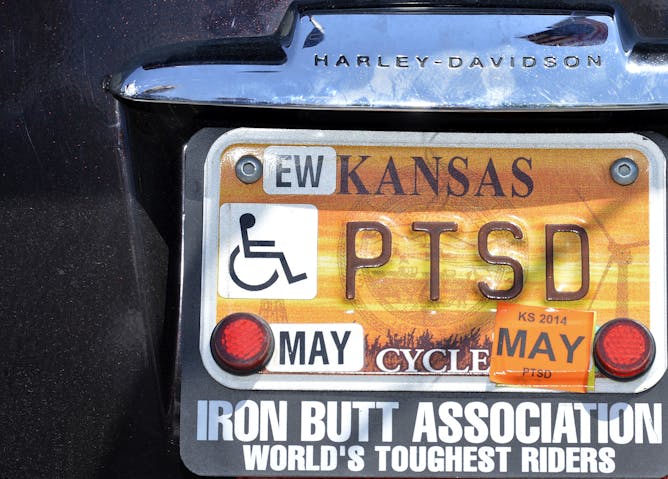
The poor treatment of Vietnam War veterans, many of whom had PTSD, angered Natasha Zaretsky’s Midwestern students.
REUTERS/Mike Theiler
Natasha Zaretsky, Southern Illinois University
A scholar raised by leftist San Francisco parents in the 1970s ends up teaching in the heartland, where her students represent a very different kind of politics. What she learns from them is profound.
|
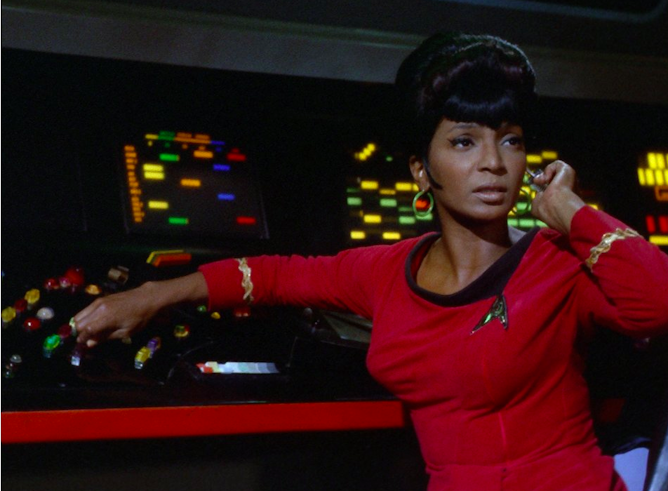
Nervous about how southern television viewers would react, NBC executives closely monitored the filming of the kiss between Nichelle Nichols and William Shatner.
U.S. Air Force
Matthew Delmont, Arizona State University
The career arc of Nichelle Nichols – the first black woman to have a continuing co-starring role on TV – shows how diverse casting can have as much of an impact off the screen as it does on it.
|
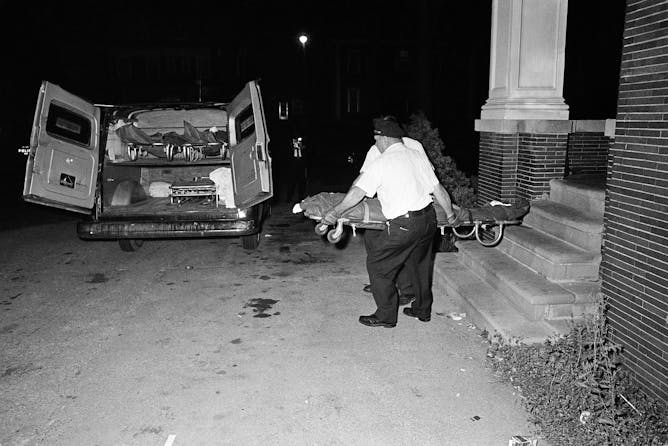
Shooting victims are removed from the Algiers Motel in Detroit, July 26, 1967.
AP Photo
Jeffrey Horner, Wayne State University
Efforts to keep the city segregated led to one of the largest civil rights rebellions of the 1960s, and interactions between citizens and police turned deadly.
|
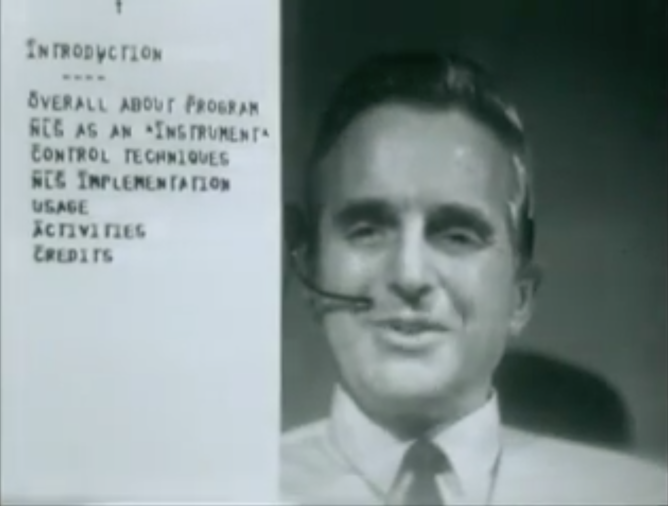
A scene from Doug Engelbart’s groundbreaking 1968 computer demo.
Doug Engelbart Institute
Margaret O'Mara, University of Washington
A 90-minute presentation in 1968 showed off the earliest desktop computer system. In the process it introduced the idea that technology could make individuals better – if government funded research.
|
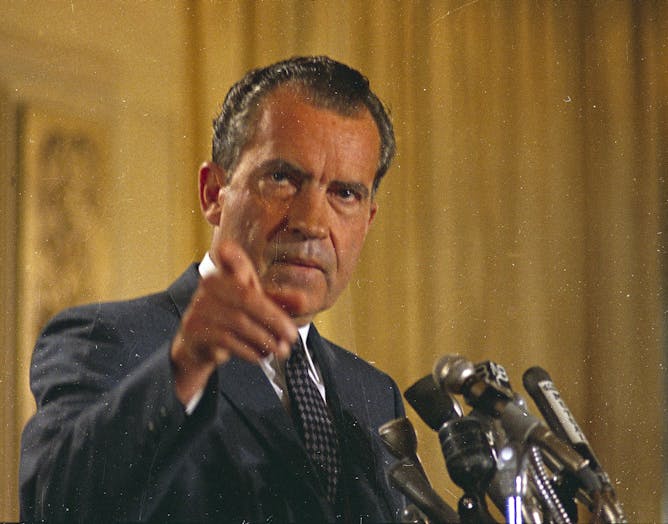
Richard Nixon, Republican candidate for president, is seen in August 1968.
AP Photo
Donald Critchlow, Arizona State University
From Thomas Jefferson to Donald Trump, the idea of the little guy ignored by politicians has loomed large in American political rhetoric.
|
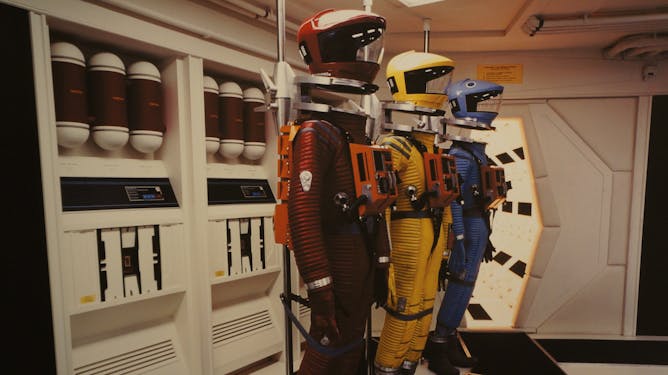
Even 17 years beyond 2001, spacesuits are bulkier than this.
Matthew J. Cotter/Flickr
Daniel N. Rockmore, Dartmouth College
People are still wrestling with what artificial intelligence could and should do, half a century after the debut of the Kubrick-Clarke classic.
|
Today’s chart
|
-

 |
Peter Rogerson
University at Buffalo, The State University of New York
|
| |